Distinct gathering and learning spaces help students belong and flourish
Click the arrow on each box below for a description and image
bell hooks center
(Director: Dr. M. Shadee Malaklou)
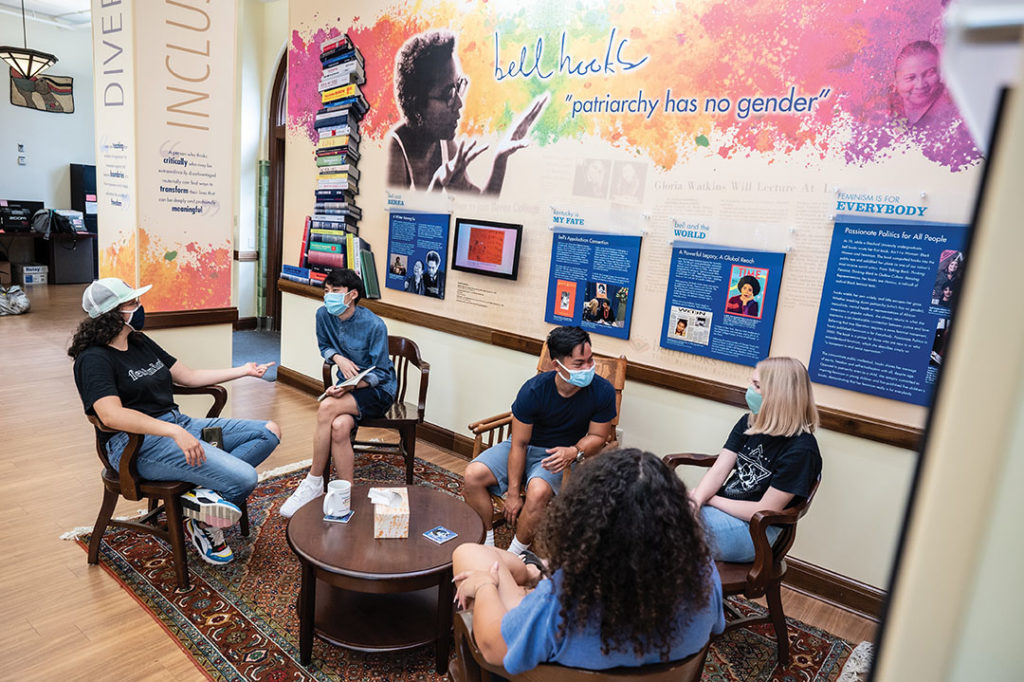
The bell hooks center is an inclusive space where historically underrepresented students can come to be as they are, outside of the social scripts that circumscribe their living.
Designed to be appealing to students—especially women, students of color and gender non-binary students, but also students who don’t identify as such but are simply looking for a safe place to lay their head—the center has an inclusive dynamic display; comfortable couches, bean bag chairs and wool blankets; individual and group study spaces; and reading nooks. The center gives space to those who are looking to unload their baggage, who are looking for a space where they can come to be as they are.
“It was important to me,” said Director M. Shadee Malaklou, “that this space be beautiful (adorned, for example, with original, commissioned art and with Persian, Turkish and Afghan rugs) as well as size-inclusive and ADA-friendly, so that our students, most of whom live at the intersections of socioeconomic oppression, racism, sexism, homo- and trans-phobia, fat-phobia, ableism and the like, would know that Berea College is committed to making them feel safe and seen.
I feel that we have accomplished this.
“I also wanted to create a space that encourages students to
become social justice leaders,” she continued, “following in bell’s
legacy to speak plainly and personally about the way the world
works and their place in it, so that they can imagine and enact new relationships that change this world.”
Black Cultural Center
(Director: Kristina Gamble)
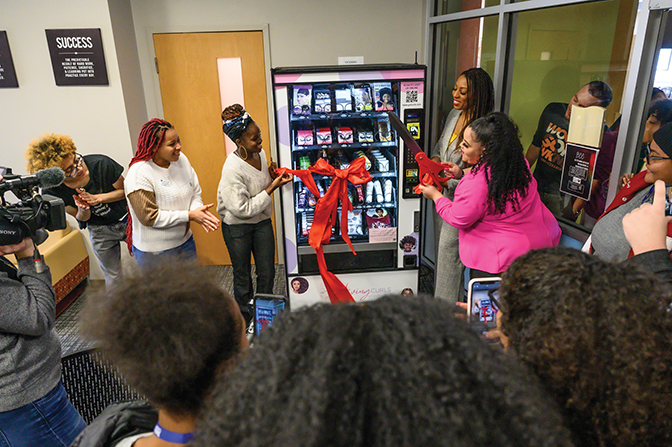
The Black Cultural Center (BCC), established in 1983, provides a supportive environment and services that target the needs of Black/African American people at Berea College. Through programming, the center supports the recruitment, retention and graduation of Black students.
“Black students are provided the opportunity to find community and receive leadership development enrichment specifically designed to equip them with tools necessary to navigate campus, community and career endeavors as a Black scholar,” said BCC Director Kristina Gamble. “Our center proudly hosts signature programs such as Kula Kusoma, Sankofa Scholars, Black Male Leadership Initiative and the Sisterhood of Queens United Among the Diaspora (S.Q.U.A.D.).”
Through the BCC, all students, faculty and staff are provided with an open invitation to learn about Black history and culture from a Berean perspective and from national and global perspectives as well.
Carter G. Woodson Center for Interracial Education
(Director: Dr. Jessica Klanderud)
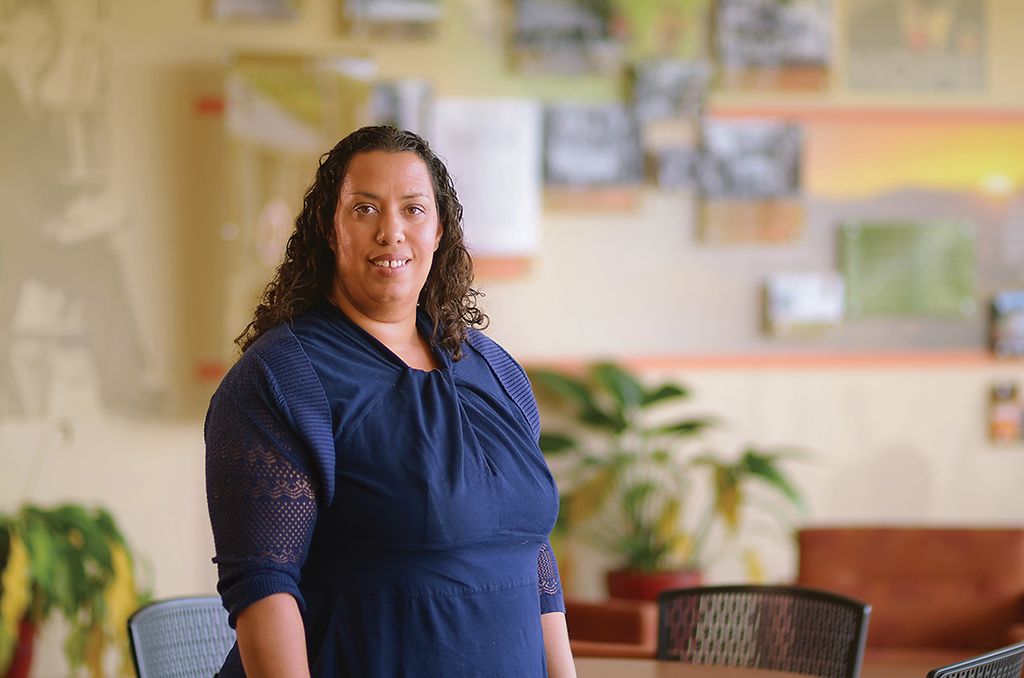
Founded in 2011, the Carter G. Woodson Center for Interracial Education (CGWC) focuses its work on the interrelationship of race and poverty through coalition building. Overall, the center’s goal is to build coalitions for anti-racism in the wider area of central and eastern Kentucky. The CGWC fosters communication around Berea College’s Fifth Great Commitment: To assert the kinship of all people and to provide interracial education with
a particular emphasis on understanding and equality among Blacks and whites as a foundation for building community among all peoples of the earth.
In service to faculty, staff, students and the broader community, the center is a space that offers programming and hosts numerous events to educate, build community and support healthy understanding and interaction among campus constituents.
Center for Excellence in Learning Through Service
(Director: Ashley Cochrane)
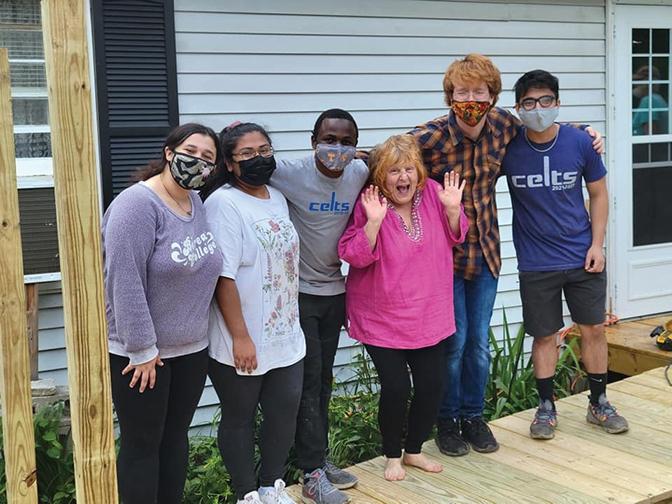
The Center for Excellence in Learning through Service (CELTS) educates students for leadership in service and social justice through promotion and coordination of academic service-learning and student-led community service. Through the work of CELTS, community-campus collaborations are a reminder that every person has something to contribute, and every person can play a role in making the community stronger.
“In other words, everyone is a teacher, and everyone is a learner,” explained CELTS Director Ashley Cochrane. “Through working and serving with CELTS, students discover and contribute to a supportive and empowering community of people who are all invested in sharing resources, skills and knowledge in service to others. Students find meaning in their community engaged work, and they realize that they have the power to create positive change.”
Center for Teaching and Learning
(Director: Dr. Leslie Ortquist-Ahrens)
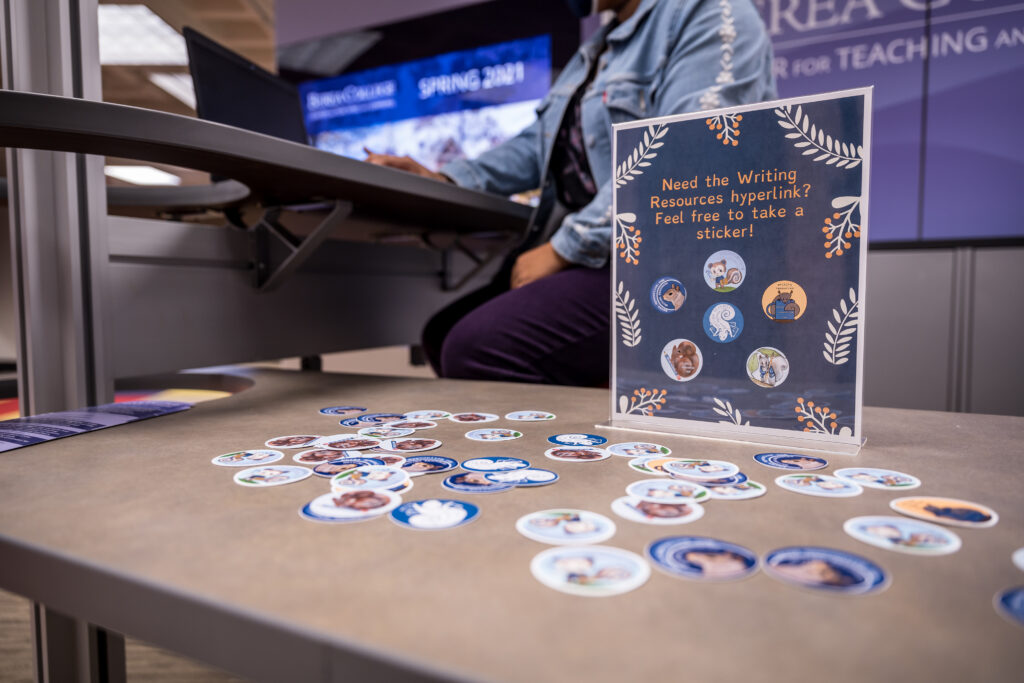
The Center for Teaching and Learning (CTL) brings faculty, staff and students together with trained faculty, staff and student leaders to deepen their confidence, skills, perspectives and insights as readers, writers, learners and teachers. Students experience direct support as writers through the services offered by Writing Resources, but also as writing consultants who hone their skills and leadership acumen through their labor positions (read more on pg. 32). Students are also supported as teaching assistants who are prepared by the director of Teaching and Learning Assistant Programs to help peers with coursework and with navigating college challenges. As students in the Student-Faculty Partnerships Program, they experience growth by collaborating on enhancing a faculty member’s target course to better support student learning. Supporting students is the ultimate goal of all CTL programming, including faculty development. To extend the reach of the staff, the unit works with many members of the community—from labor students to faculty—to equip them to also provide direct support for students.
Espacio Cultural Latinx
(Student Support Coordinator: Juan Jaimes Costilla)
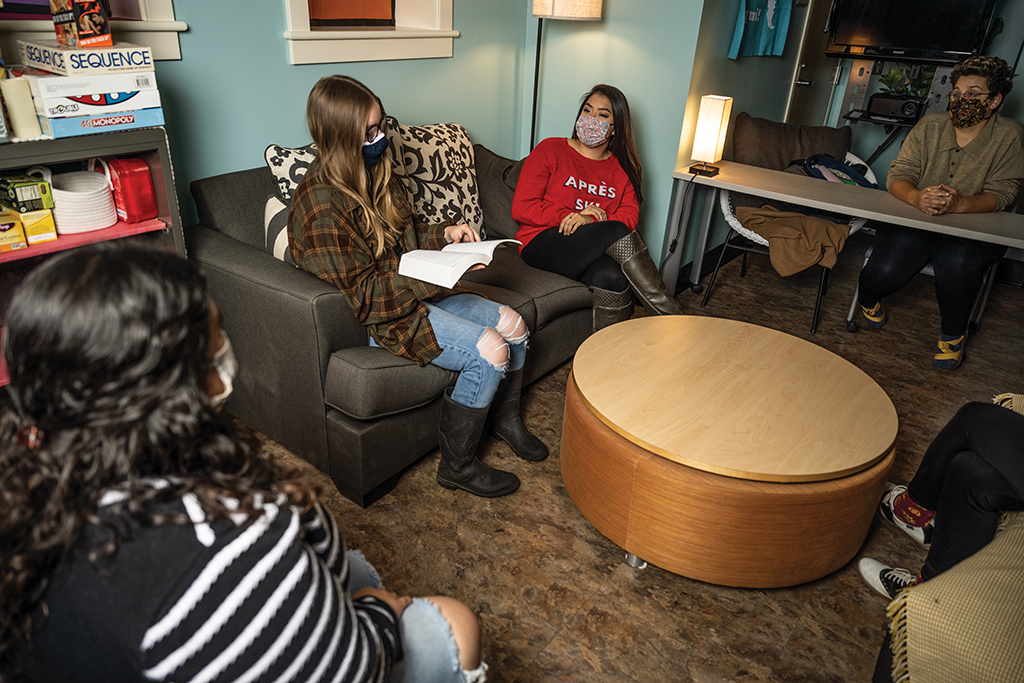
The Espacio Cultural Latinx (ECL) is a dedicated space run by a full-time staff person and by students through the labor program. The ECL helps raise awareness of Latinx issues and cultures through its programming, broadening the perspectives of all students and making Berea College a more inclusive and diverse community.
“We accomplish this through our various initiatives including: a Latina support group, the Latino Male Initiative, various Latinx student organizations, more than 30 annual events and programs, and through mentorship and community building engagements,” said Student Support Coordinator Juan Jaimes Costilla.
The ECL is also a collaborative space where students come for mutual support, study and enriching conversation.
“We partner and collaborate with various departments, centers and offices to ensure that our resources and services reach all students who would benefit from the ECL,” Costilla said. “We take the lead on Hispanic Heritage Month and coordinate programming for all of campus to enjoy and celebrate our Latinx cultures and traditions. We also organize our Latinx graduate recognition ceremony, which is held in late April and is used to recognize our Latinx graduates and their accomplishments at Berea College.
Francis and Louise Hutchins Center for International Education
(Director: Dr. Richard Cahill)
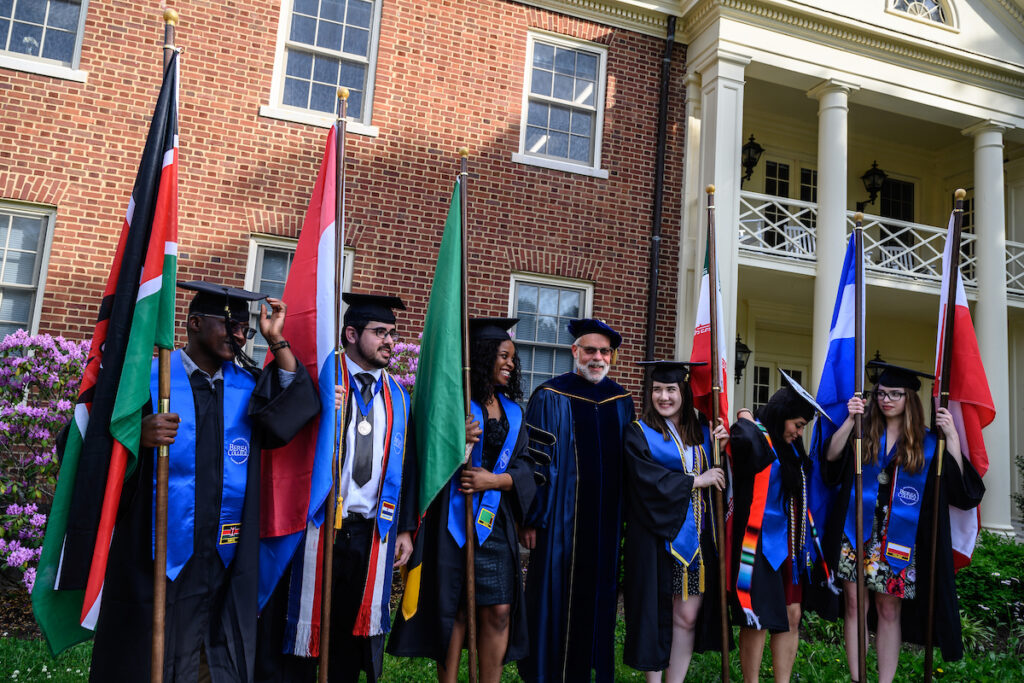
Created in 1998, the Francis and Louise Hutchins Center for International Education (CIE) fosters understanding of, and respect for, all peoples of the earth. The center supports Berea’s international student population from before they arrive on campus through to post-graduate assistance.
The CIE runs an extensive orientation for incoming F-1 international students. An F-1 visa allows a student to enter the U.S. as a full-time student at an accredited institution of learning. From making up their dorm rooms with sheets and bedding to setting up a bank account and taking them to the social security office to get a social security number needed to work in the Labor program, the CIE’s orientation is comprehensive, explained Director Dr. Richard Cahill.
“The CIE provides all incoming F-1 students with a quarter-credit course in their first semester on campus titled Integrating Cultures,” Cahill said. “This course helps new international students learn about American culture and Berea’s history and resources, navigate local relationships, stay safe and how to remain ‘in status’ (relative to their F-1 visa).”
The CIE also supports and guides students to study abroad.
Pre-Covid, almost 50 percent of Berea graduates had studied abroad, with most of those study abroad experiences supported by generous grants provided by the College.
The CIE also guides students through amazing post-gradation opportunities, such as Watson Fellowship and Fulbright scholarships. And importantly, the CIE helps F-1 international students with their “OPT” application, which allows them to work for 12 to 23 months after graduation in the field in which they majored.
Loyal Jones Appalachian Center
(Director: Dr. Chris Green)
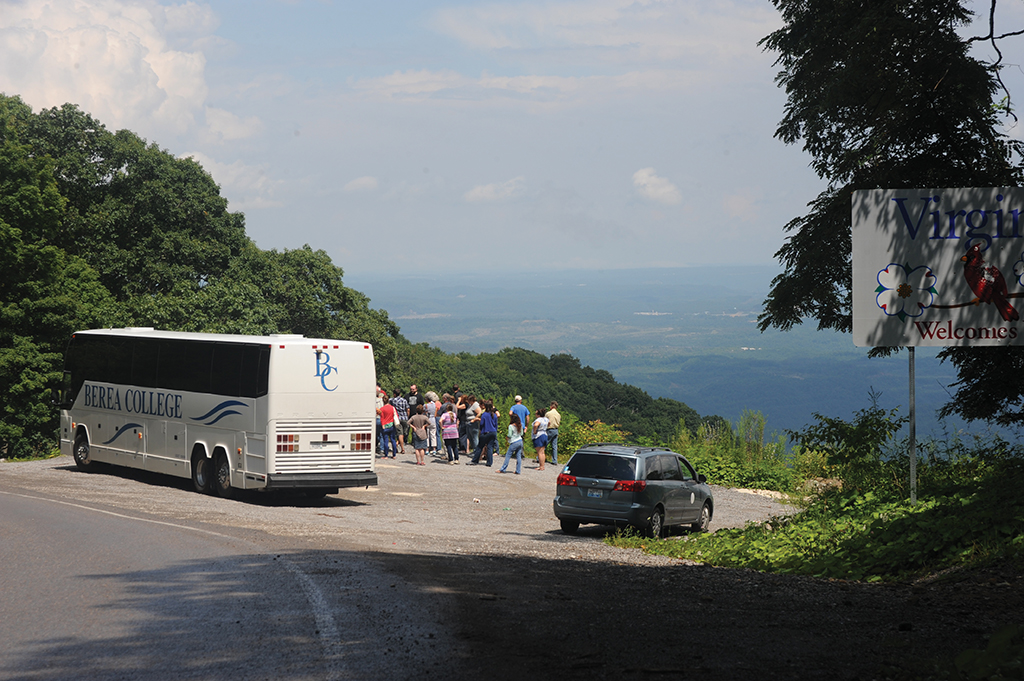
The Loyal Jones Appalachian Center (LJAC) strives to stimulate student and scholarly interest in Appalachian Studies. The center serves as one of the nation’s information sources to educate others about the region. It fosters teaching and learning for all undergraduates regarding Appalachia, while supporting the academic, career and social success of students from Appalachian counties.
“The LJAC serves as a home away from home for students from throughout the region and beyond,” said LJAC Director Dr. Chris Green. “At LJAC, students relax and learn, connect and create. We advocate for students from the region and help the entire campus learn about the region itself through the lens of the Eight Great Commitments.”
Willis D. Weatherford, Jr. Campus Christian Center
(Dean: Reverend Dr. LeSette Wright)
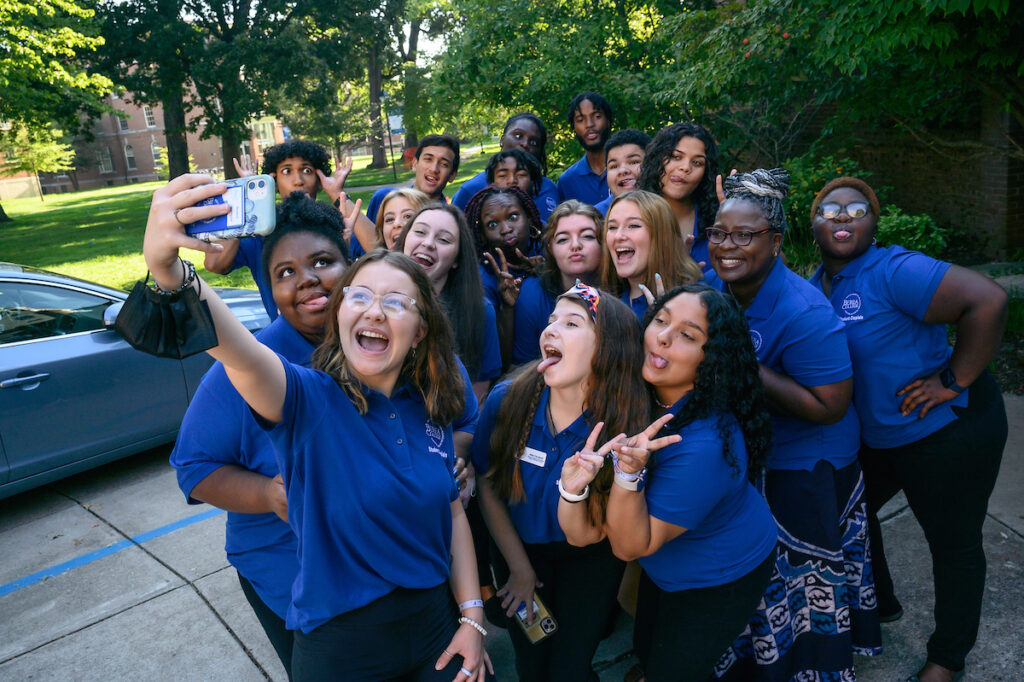
The Campus Christian Center (CCC) provides devotional study of Christian scripture, interfaith conversations and events, and intellectual and spiritual engagement with the Christian faith through convocations, lectureships, workshops and occasional spiritual retreats. Through weekly chapel services and interfaith programming, the CCC connects students from all faith backgrounds, helping every student feel a sense of belonging and acceptance of their spiritual beliefs and fostering the learning that can occur across religious differences.

